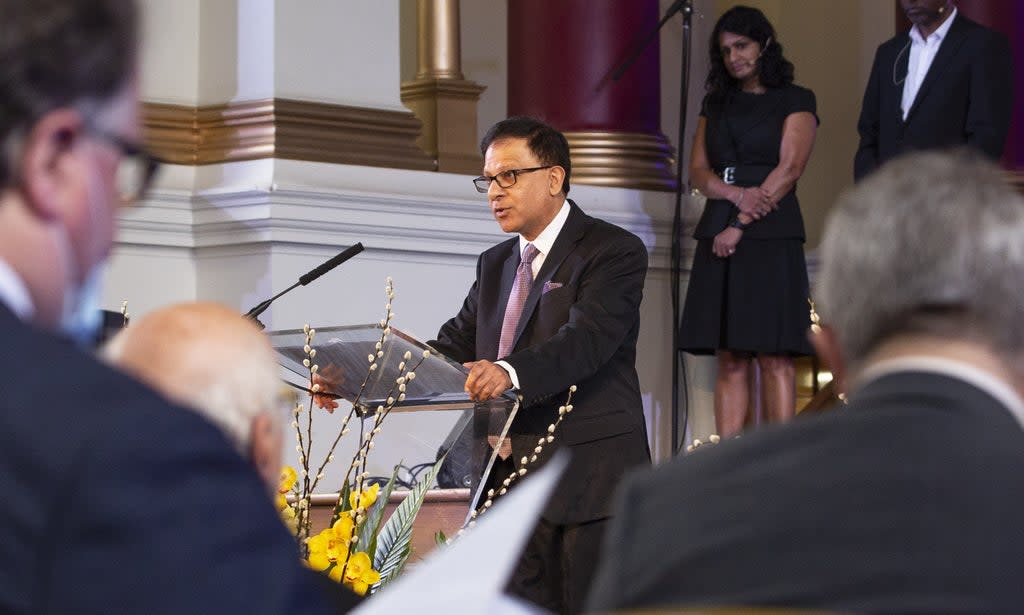Government failed to protect doctors in its handling of the pandemic, union finds

The government has been accused of failing in its duty to protect NHS staff in the handling of the pandemic in the first of five reports from a major health union.
Doctors’ union the British Medical Association has said medics came to avoidable harm and suffering and that the government “failed in its duty of care” in its management of the Covid-19 pandemic.
In their assessment of the national Covid-19 pandemic response, the BMA has looked at whether doctors were protected over the past two years.
The union warns that “chronic” underinvestment in health services in the UK meant it was not well prepared for the pandemic.
A key issue raised in the report was shortages of PPE, with reports from doctors suggesting they did not have access to adequate protective equipment during the first pandemic wave.
The report said: “Some doctors were particularly poorly protected. Female doctors often struggled with poorly fitting PPE that left them exposed. Doctors from ethnic minority backgrounds disproportionately reported that they felt risk assessments were less effective, compared to their white colleagues.”
Evidence within the BMA’s report includes a survey done following the first pandemic wave, which found that 81 per cent of doctors did not feel fully protected.
One doctor said in the report: “Several of us were told not to wear facemasks on rehab wards for fear of frightening the patients. This was true in many hospitals, and I believe it was a top-down policy.”
Another doctor said: “I was put under pressure to carry on regardless and ‘support my colleagues’.”
The report also highlights issues doctors faced with long Covid, with surveys previously published showing 51 per cent reported that while they were still able to work their quality of life was impacted.
A junior doctor told reviewers: “I caught Covid-19 in March 2020 from a colleague at work. I have been mostly bedbound since. My life as I knew it had ended. These are supposed to be the best years of my life but I’m spending them alone, in bed, feeling like I’m dying almost all the time.”
According to figures referred to in the report, between February 2021 and January 2022 the BMA’s counselling service saw a 173 per cent increase in calls compared to the period between February 2019 and January 2020.
“I found the experience to be the most disturbing of my career because of the stress of the unknown, the frustration around slow national response, the overwhelming pressure we were under and the emotional toll on almost everyone I was working with. I didn’t sleep, often felt angry and suffered post-traumatic stress for a period,” said one senior doctor in Scotland.
The BMA has made a series of recommendation for the government including:
· That the UK government and devolved nations continue to carry out pandemic preparedness exercises for the most likely types of infections
· For wellbeing support, timely occupational health assessments, and access to psychological support to be made available.
· To introduce mechanisms to the experience of working in the NHS less variable by background
Dr Chaand Nagpaul, BMA chair of council, said: “A moral duty of government is to protect its own healthcare workers from harm in the course of duty, as they serve and protect the nation’s health.
“Yet, in reality, doctors were desperately let down by the UK government’s failure to adequately prepare for the pandemic, and their subsequent flawed decision-making, with tragic consequences.
“Many doctors were left unprotected due to critical shortages of PPE as coronavirus hit our shores, resulting in healthcare professionals becoming infected at a higher rate than the rest of the population.
“Hundreds of healthcare workers lost their lives after contracting Covid-19. 95 per cent of doctors who died in April 2020 were from an ethnic minority, a figure which demands that the UK government addresses the deep race inequalities afflicting our NHS workforce.
“With no respite, doctors worked on the frontline exposed to the virus - while the majority of the public stayed at home during the lockdowns.
“They saw levels of illness and death they were never trained for. With the dystopian reality of no hospital visitors, doctors had to hold phones in front of dying patients so they could say goodbye to loved ones.”
The Department for Health and Social Care was approached for comment.

